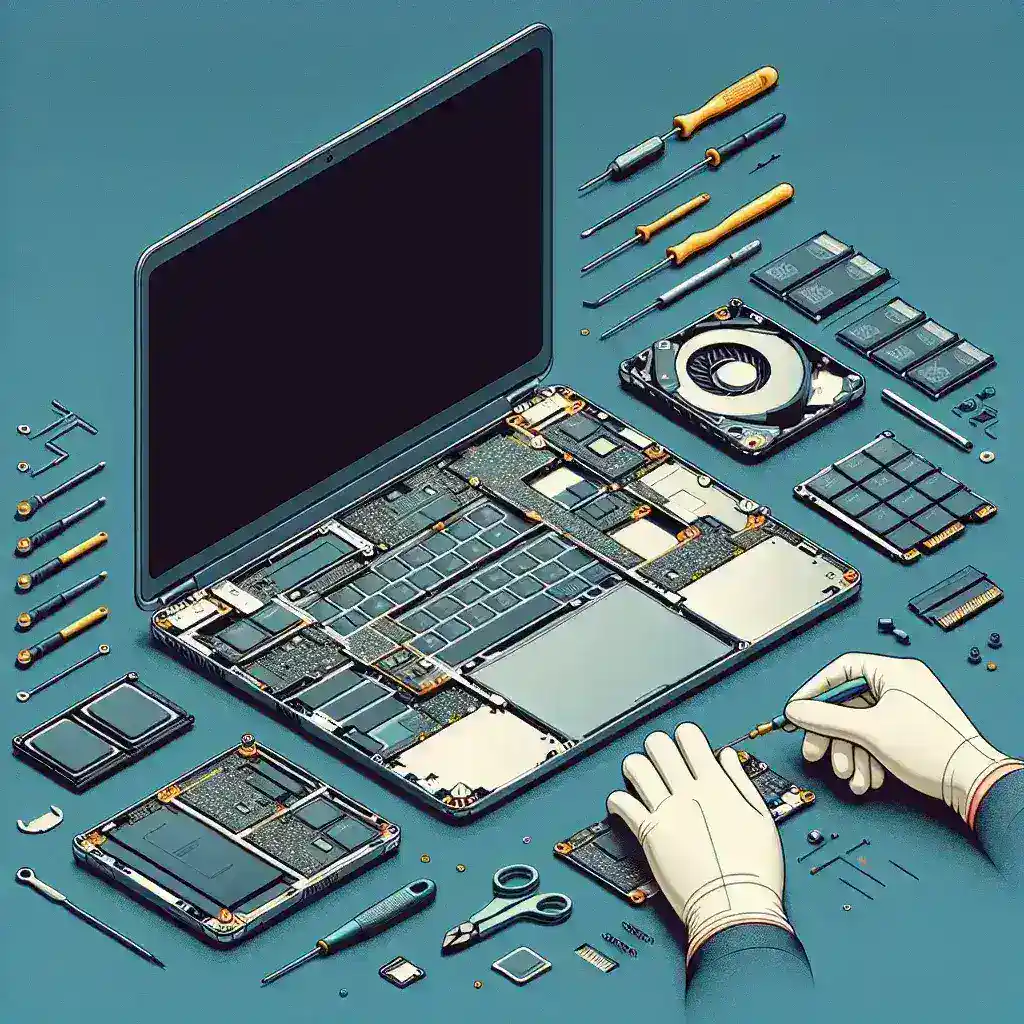Framework Laptop: Modular Repairable Designs Gain Traction

Introduction
In an era where sustainability has become paramount, the Framework Laptop is garnering attention for its modular design and repairability. This innovative laptop is not only a testament to modern engineering but also a beacon of hope for environmentally conscious consumers. As we delve deeper into the Framework Laptop’s design philosophy, historical context, and future implications, it’s essential to understand why modular repairable designs are gaining traction in the tech industry.
The Rise of Modular Design
Historically, laptops and other electronic devices have been designed with the intention of being compact and aesthetically pleasing. However, this often leads to difficulty in repairs and upgrades. The push for modular designs can be traced back to several factors:
- Environmental Concerns: With e-waste becoming a global crisis, modular designs allow users to replace or upgrade components without discarding the entire device.
- Consumer Demand: Users are increasingly seeking devices that they can repair or customize according to their needs.
- Technological Advancements: Innovations in materials and engineering have made it feasible to create devices that are both modular and powerful.
Framework Laptop: A Case Study
The Framework Laptop epitomizes the shift towards modular design. Here are some key features that set it apart:
1. Modular Components
The Framework Laptop’s components can be easily swapped out or upgraded. This includes:
- RAM: Users can upgrade their memory easily, allowing for enhanced performance.
- Storage: The laptop supports various storage options, making it adaptable to different user needs.
- Screens and Keyboards: Users can choose from different screen sizes and keyboard layouts.
2. Repairability
One of the standout features of the Framework Laptop is its repairability. Each component is designed to be user-repairable, with easy access to internal parts. This means:
- Users can replace batteries, screens, or other components without professional help.
- Repair guides are readily available, empowering users to take charge of their devices.
- The design minimizes the need for specialized tools, making repairs accessible to everyone.
3. Sustainability
The Framework Laptop is not just about convenience; it also shines in the sustainability department:
- By allowing users to replace only broken or outdated components, the laptop significantly reduces e-waste.
- The company emphasizes the use of recycled materials in its manufacturing process.
- Framework also supports a community-driven marketplace for users to buy and sell used components.
Future Implications of Modular Laptops
The success of the Framework Laptop could pave the way for a broader adoption of modular designs in the tech industry. Here are some predictions:
1. Industry Shift
As consumers demand more sustainable products, other manufacturers may follow Framework’s lead. This could lead to a significant shift in how laptops and other electronics are designed and sold.
2. New Business Models
With an increase in repairable devices, companies might explore new business models focused on servicing and upgrading, rather than outright sales.
3. Enhanced User Experience
Consumers will enjoy greater satisfaction, as modular designs allow for personalization and adaptability. Users can tailor their devices to better suit their unique needs, enhancing their overall experience.
Challenges Ahead
While the rise of modular designs is promising, several challenges remain:
- Consumer Awareness: Many consumers are still unaware of the benefits of modular designs.
- Initial Cost: Modular laptops can sometimes have a higher upfront cost compared to traditional laptops.
- Market Competition: Established brands may resist change, making it difficult for modular designs to gain a foothold.
Conclusion
The Framework Laptop represents a significant leap toward sustainable and user-centric technology. As modular repairable designs gain traction, they offer a viable solution to the growing problem of e-waste while catering to consumer demands for personalization and repairability. The future is promising for modular laptops, and with continued innovation, they may become the standard rather than the exception in the tech industry.
